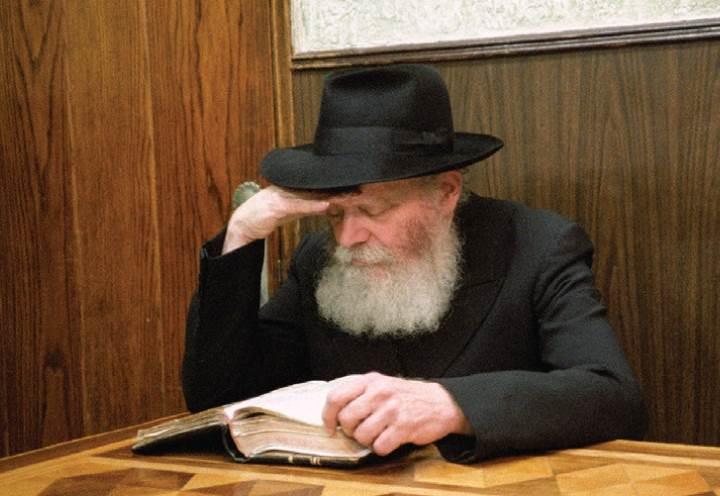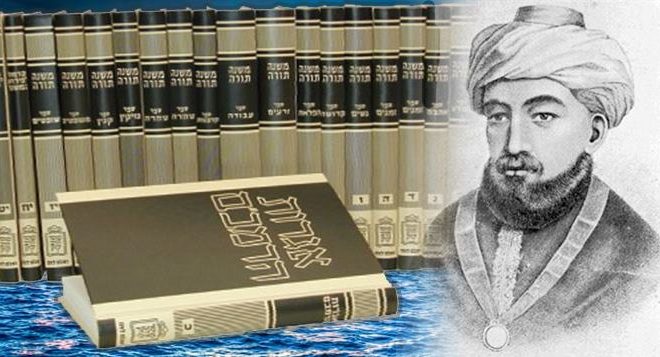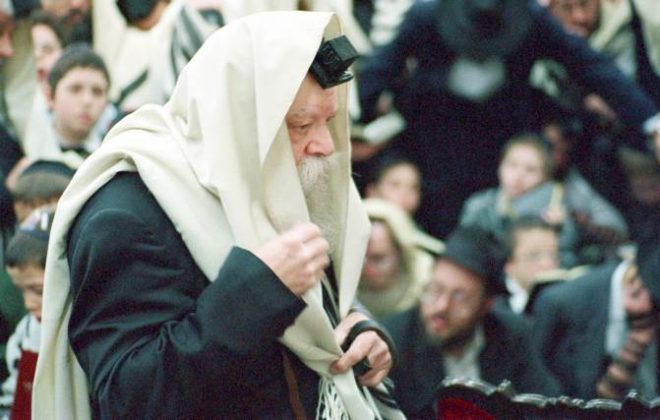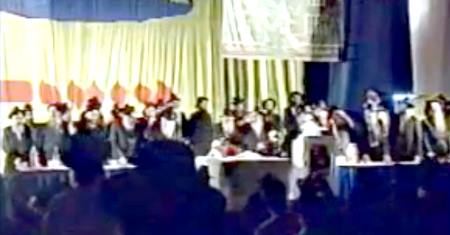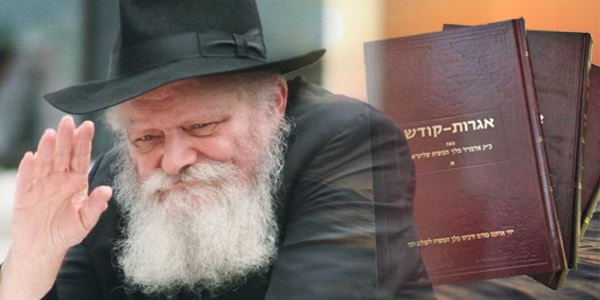Understanding who is the Rebbe
Understanding the function of a “Rebbe”
The Baal Shem Tov revealed the inner meaning of Rebbe (made up of the Hebrew letters, reish, beis, yud, an acronym for Rosh B’nei Israel (Head of the Children of Israel). A Rebbe is the head of his generation, as well as the leader and potential Moshiach. The Alter Rebbe, in his famous holy book, Tanya, Ch. 2, expands on this issue. He teaches us that in every generation, there is one such tzaddik (righteous person). Just as the head is the source of life for the body, this tzaddik, the Rebbe, is the head of the whole Jewish nation. The Rebbe, in a letter dated Gimmel Tammuz (3rd day of Tammuz), explains that the leader of a generation must physically exist, “is the head through which all are nurtured, physically and spiritually.” Since all Jews are one body, and a physical body cannot live without a head, so, too, the Jewish nation cannot live without its head, a physical leader. As our Rebbe stresses, “In each and every generation there must physically exist a leader, body and soul, in whom the soul of Moshe Rabbeinu is invested.” Only when the head is attached to its body can the body be considered alive.
A leader for the generation
The Rebbe is recognized as a towering Torah scholar and leader of all Jewry. Over 200 volumes of the Rebbe’s Torah commentary are published to date, and more are being published. His writings span the full spectrum of Jewish scholarship, including Jewish law, ethics, philosophy, Chassidic thought and Kabbalah. Since the beginning of his leadership in 5711 (1951), his efforts to reach every segment of the Jewish people are unlimited. For over forty years, the Rebbe has been sending his emissaries wherever a Jew may be found — as far away as Morocco, Russia, Thailand, and Australia. The Rebbe has also stressed the importance of bringing a recognition and belief in G-d to the secular world as exemplified by his call to publicize the Torah’s “Seven Laws of Noah,” which apply to all humanity, and for public schools to observe a “Moment of Silence.” The United States government has recognized the Rebbe’s greatness by awarding him the Congressional Medal of Honor and honoring his birthday, the 11th of Nissan, establishing it as a “National Day of Education.”
From prime minister to layman, child to renowned Torah scholar, thousands of men, women and children from every walk of life come to the Rebbe’s synagogue at 770 Eastern Parkway to receive the Rebbe’s personal advice, blessing and unbounded love. Whether through a personal audience with the Rebbe in the Rebbe’s room or by letter, fax or phone, the Rebbe connects to each and every one as if he or she were the only person existing in the world. At the same time, the Rebbe carries the burden of the entire world upon his shoulders. Starting in 1986, the Rebbe stands for hours every Sunday, and personally receives each of the thousands of people who came to see him for his blessing and advice. The Rebbe hands each and every person a dollar that would be exchanged for charity. This is known as the Sunday dollars line. The Rebbe is also well known for his public gatherings every week on Shabbos and days of special Chassidic events, known as farbrengens. During these gatherings, the Rebbe teaches Torah and reveals his insights into Torah topics. These are popularly known as Chassidic discourses and talks of the Rebbe. As a world leader, the Rebbe also discusses current world events from the perspective of Torah.
Since the Jewish nation is living and flourishing and Chabad Lubavitch and the teachings of the Rebbe are flourishing, so, too, the Rebbe is living. The Rebbe is the leader of our generation,who is leading us out of exile into Redemption. There is no successor to the Rebbe.
Longing for the Redemption
The Lubavitcher Rebbe’s concern and longing for the final Redemption is evident even when he was a child, as seen in a letter that the Rebbe sent to Yitzchak ben Tzvi (the prime minister of Israel at that time) on the 11th of Nissan, 5716 (1956):
“From the day I went to cheder [primary school for 3-year old boys] and even before, the picture of the final Redemption started forming in my mind — the Redemption of the Jews from their last exile, a Redemption in such a way that through it will be understood the sufferings of exile, the decrees and the destruction… And all will be in a way that with a complete heart and full understanding it will be said on that day, ‘Thank you, Hashem (G-d), for chastising me.’
A Prophet
According to the Rambam (Maimonides), one of the greatest authorities on Jewish law, Moshiach will have the power of prophecy even before the Redemption. After a prophet establishes himself to be a true prophet, it is forbidden by Torah law to doubt him. The Rebbe has made numerous prophecies that have come true. The following are among the most well known:
1) A week and a half before the Six Day War, the Rebbe predicted that there would be a great victory and asked that his prediction be publicized.
2) In 1966 the Rebbe already predicted the fall of Communism. In 1987 when the Iron Curtain was still impenetrable, the Rebbe made a startling request. He asked his Chassidim to build homes and prepare jobs in Israel for the masses of Jews who would be leaving Russia. Two years later in 1989, the doors of Russia miraculously sprung open. Millions of Jews streamed into Israel. The recently built housing, prepared according to the Rebbe’s directive, overflowed with the new arrivals.
3) During the Gulf War the Rebbe predicted that Israel would be the safest place, there would be no need for gas masks, and that by the war would be over by Purim. Indeed, this is exactly what occurred.
These are only three prophecies — the list is endless. The Rambam states that if two prophecies materialize, this fulfills the criteria of a true prophet.
On August 25, 1991 the Rebbe said that as the leader, judge and prophet of our generation, his main prophecy is, “Redemption is coming imminently.” As a true prophet according to Jewish law, the Rebbe’s prophecy is for all people. The Rebbe adds that it is an obligation to believe and listen to everything he says, “because these are G-d’s words through the prophet.” The Rebbe also instructs us to publicize to everyone in our generation that we merited that G-d has chosen a prophet for our generation.
The Torah teaches that in every generation there is an extension and continuation of Moshe Rabbeinu (Moses), the father of all prophets. The Rebbe tells us that the head of the generation is the extension of Moshe Rabbeinu. Just as Moshe brought the words of G-d and the entire Torah to the world, so, too, the Rebbe, the Moshe of our generation, brings us G-d’s words.


